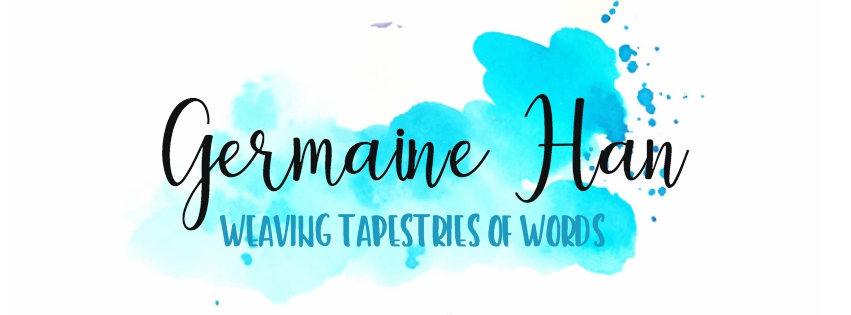There are some tropes in books and films that I really, really like. As in, I am a total sucker for these tropes. So I’m just going to go through these today — and maybe even discuss why they’re so popular.

1. Band of misfits
If I had a favorite trope, this would be it. I love this trope, so, so much — and I’m fairly certain it appeals to many others, too. There’s something so endearing to me about a group of vastly different people banding together, becoming friends, then gradually coming to think of each other as family — while simultaneously saving the world (I mean that part is pretty cool, too). But it’s just so soft and wholesome? It just tells you that yes, you’ll belong somewhere even though you stick out from the crowd, and that you’ll find home eventually, even if it doesn’t seem like it now.
I mean, I love it so much that it’s practically the trope that sums up my WiP.
Book examples: The Lunar Chronicles, Aurora Rising
Film examples: Big Hero 6, The Avengers
2. Comic relief sidekick (who is actually deeper than they seem)
I know some people don’t like this because it’s been done a lot, but I still really like this trope. Comic relief characters who are only surface level are tolerable, sure, but those who are deep and have hidden layers beneath all their jokes? Now that’s the good stuff. Although they’re often side characters, they don’t have to be — even main characters can be the comic relief of their own story, right?
I almost always have a comic relief character in my WiPs. (See a trend here?) I just, really like this trope, okay, and the more I like a trope, the more likely I am to incorporate it into my stories.
Book examples: Keefe Sencen from Keeper of the Lost Cities, Connor Bailey from The Land of Stories, Qibli from Wings of Fire
Film examples: Donkey from Shrek? I find it harder to find comic relief characters with depth in films because I don’t watch as many.
3. Chekhov’s gun
Okay, the reason I like this one so much is because it is incredibly satisfying. I’ll paraphrase what Anton Chekhov said, but basically, if you introduce a gun in Act 1, it has to be shot in Act 3. It doesn’t have to be a gun. It could be a prop or an idea. The entire concept is means that anything — especially if it’s a specific or unusual object — that you set up in the first scenes is foreshadowing for what is to come in the final scenes. In essence, it’s simplifying your story so everything is intentional and you have no plot holes. That’s why it’s especially satisfying when the gun is shot, so to speak (and it’s best if it’s unexpected).
Book examples: The Mark of Athena (highlight for spoiler) Chinese Handcuffs are used to trap Arachne (spoiler over), Mistborn (highlight for spoiler) Vin’s earring turns out to be the reason she can pierce copperclouds (spoiler over). I’d also advise you to go and check out Chekhov’s work.
Film examples: Aquaman (highlight for spoiler) the fighting move Vulko teaches Arthur is used later when Arthur battles Orm (spoiler over), Jurassic World (highlight for spoiler) the mosasaur kills the Indominus Rex (spoiler over)
4. “I’m never doing this thing!” — cuts to scene where character does said thing
Oh my gosh. This trope. Absolute comedy, I tell you.
I know C. G. Drews from Paperfury really likes this (she uses it in her books, too!) and before she brought it up, I hadn’t really thought about it. But as long as it isn’t overdone, I find it entertaining, and it serves as some comic relief in darker books or films.
Book examples: The Boy Who Steals Houses (“Okay, you can stay for one night” (paraphrased). Scene cuts to where the characters have been together for two weeks)
Film examples: Thor: Ragnorok (“we are not doing get help”)
5. Small, soft character finally snaps
Ahhh this trope. There are two instances that I especially like: where the character who just never speaks up and accepts everything that happens finally has enough, or where that one loving, peaceful friend just snaps at something and it’s practically the most terrifying thing anyone has ever seen.
There’s a catch, though: it has to be done well. If the character snaps at something only to be petty and hateful, that’s not good. But if there’s been a buildup of emotions within them and they’ve finally had enough, or if they’ve learned that sometimes it’s good to speak up, then by all means, shoot for it.
Book examples: Cress from The Lunar Chronicles, Beck from A Thousand Perfect Notes
Film examples: Luke Skywalker from Star Wars

That’s all for now!
Do you like these tropes? What other tropes do you secretly / not-so-secretly like? Let me know in the comments below!
Make your mark,

OTHER POSTS YOU MIGHT LIKE:
Thoughts on Booktube + Booktuber Recommendations
How to Develop Your Characters (before you start writing the book!)
How to Write A GOOD Love Triangle (that readers will agonize over!)




